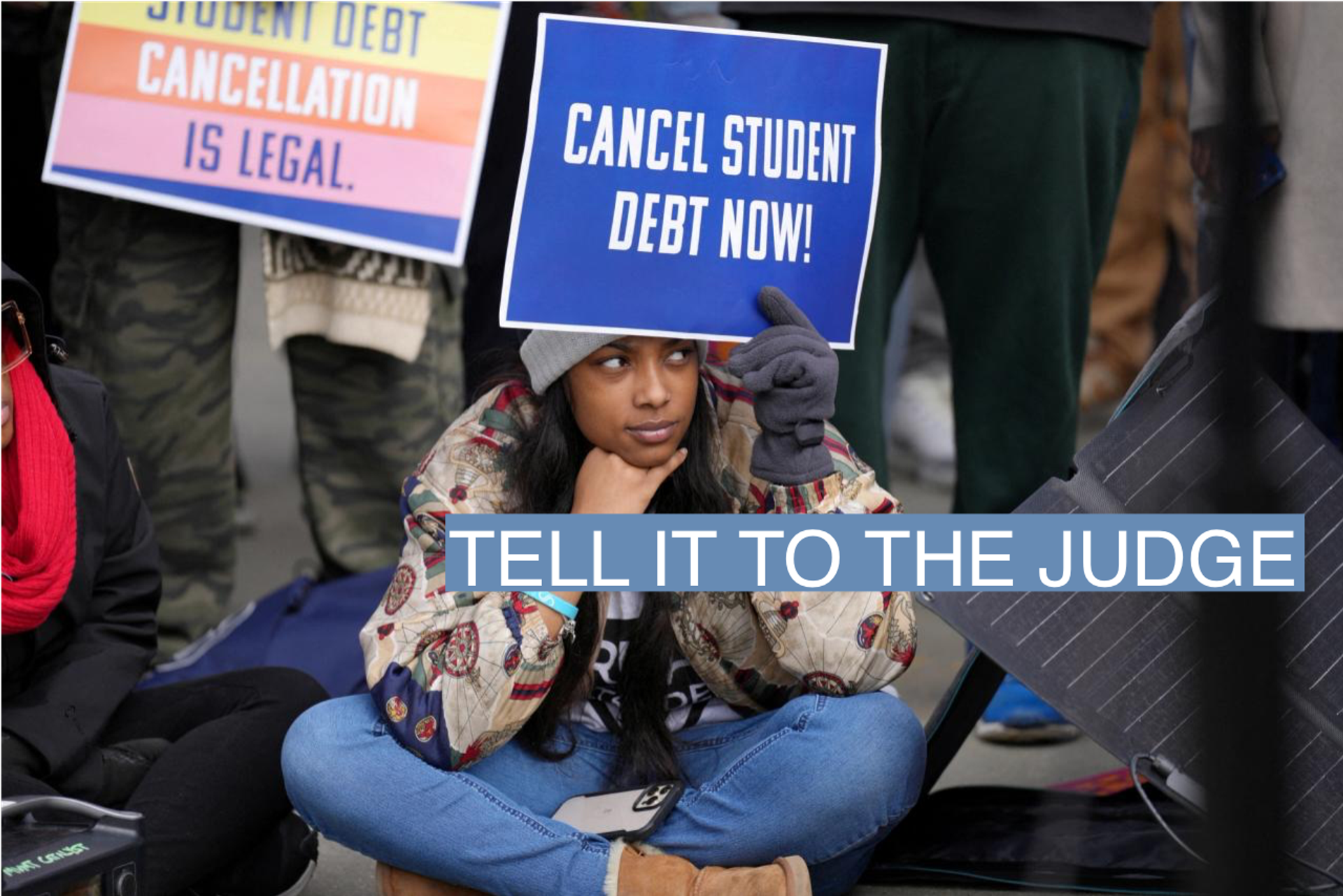The News
The Supreme Court looked inclined to squash the Biden administration’s sweeping student loan cancellation program during oral arguments on Tuesday, as member after member of the bench’s conservative majority suggested that the president’s $400 billion attempt to clear away debt may have overstepped the authority granted to him by Congress.
The administration’s argument that it was acting legally under the 2003 HEROES Act, which allows the Department of Education to “waive or modify” loans in response to a national emergency, seemed to hit a wall with the conservative bloc.“We’re talking about half a trillion dollars and 43 million Americans,” Chief Justice John Roberts said. “How does that fit under the normal understanding of ‘modify?’”
So what will the administration do if it loses? For now, that’s a bit unclear.
In this article:
Joseph’s view
The White House has been reluctant to even discuss whether it has prepared any sort of a backup plan, expressing confidence they’ll prevail in court. One possible reason why they’ve stayed mum: The White House may not want to cast doubt on its own legal case by talking about what it will do in response to a loss.
But they do have some options and they’re already facing pressure from allies to pursue them if they lose the current case.
Just try it again. Some progressives are urging Biden to take a mulligan and give mass cancellation another go under a different legal theory, even in the face of a hostile court.
Activists argue the administration can still try to enact forgiveness using what’s known as “compromise and settlement” authority granted under the Higher Education Act, arguing that the Education Department can simply stop collecting student loans if it chooses. This was the original legal justification that Democrats like Sen. Elizabeth Warren, D-Mass., and Senate Majority Leader Chuck Schumer urged the Biden administration to adopt before the White House settled on the HEROES Act instead.
“It was a mistake to tie student debt cancellation to the pandemic ‘emergency’ and the HEROES Act powers to begin with, because the necessity to cancel student debt long pre-existed the pandemic and will continue to exist after the emergency is over,” Marshall Steinbaum, an economics professor at the University of Utah who supports debt cancellation, told Semafor.
Braxton Brewington, press secretary for student borrower advocacy group Debt Collective, said they were making the case to use the compromise and settlement authority as recently as last month during a meeting with officials in the Domestic Policy Council.
One possible hurdle to the approach: If the Supreme Court strikes down the current forgiveness program, there’s a strong chance its reasoning will block the administration from using other creative statutory interpretations to forgive debt.
Make it easier to repay loans. Another, possibly more realistic, option for the administration would be to pour energy and resources into making sure borrowers enroll in the new income-driven repayment plan Biden has unveiled. The proposal, which is still being finalized, has flown relatively under the radar. But experts say it could be hugely consequential, amounting to a backdoor plan for free-community college, and quick forgiveness for many current borrowers.
Specifically, it would lower monthly payments to just 5 percent of a borrower’s disposable income for undergraduate debt and speed up the normal forgiveness timeline so that people who start with balances under $12,000 would have their loans wiped after 10 years.
“His proposal as-is goes pretty far,” Dean Baker, a left-leaning economist at the Center for Economic and Policy Research, told Semafor, suggesting enrollment should be automatic. “The big thing is making sure that people know about it and that it is easy to get in it.”
Call up Republicans. Others say Biden should settle for bipartisan baby steps and squeak out what he can from Congress. Kevin Miller, associate director of higher education at the Bipartisan Policy Center, said there’s interest in both parties to authorize the use of Pell Grants for short-term job training opportunities. Sens. Tim Kaine, D-Va., and Mike Braun, R-Ind., re-introduced their bipartisan bill in late January.
Room for Disagreement
One of the court’s conservatives, Justice Amy Coney Barrett, asked tough questions about whether the plaintiffs in the case had standing to bring their suit, offering the White House and its allies hope that the program might survive the challenge on procedural grounds.
“Our Administration is confident in our legal authority to adopt this plan, and today made clear that opponents of the program lack standing to even bring their case to court,” Education Sec. Miguel Cardona said in a statement after oral arguments.
Notable
- The New Yorker’s Eleni Schirmer profiled Betty Ann, a 91-year-old woman with nearly $330,000 in student debt despite graduating from law school over three decades ago. The Education Department canceled her debt under its compromise and settlement authority. “Occasionally, she has questions. If her debts could be wiped clean in 2022, why couldn’t they have been canceled decades earlier, before she moved out of the house that she once owned, before she sold her family furniture? Why did it take a reporter’s inquiry for the Department of Education to realize that it had failed her?” Schirmer writes.
